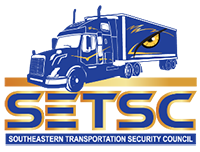A wide range of experts agrees on the most logical person to focus on in the prevention of costly trucking piracies: the driver.
by Caroline McDonald
A whole host of factors, including the ease of breaking into and stealing a truck and trailer and of dispensing of stolen cargo, the omnipresence of gangs, and the relative indifference of law enforcement has turned trucking piracy into a big and burgeoning risk for a wide range of companies, risk management experts say.
Trucking cargo thefts amount to $30 billion a year, according to 2010 estimate by the FBI, and they’re rising. In the second quarter of this year, in fact, cargo theft incidents rose 22% over the same quarter of 2011, data provider CargoNet found.
Indeed, thieves targeting high-risk goods transported via trucks represent a growing business, property, and reputational hazard for manufacturers and transportation companies, according to a variety of risk management sources.
Two of the riskiest products being transported are pharmaceuticals and electronics. Often valued at millions of dollars per load, they can be very alluring to pirates. Other high-risk products include tobacco, alcohol, and luxury retail goods, according to Bert Mayo, a vice president of risk control services with Lockton, an insurance broker.
Considering the wide range of participants in the transportation of goods via trucks – manufacturers, distributors, loaders, purchasers, transportation officials – it’s understandable that a company might find it hard to focus on how to prevent cargo theft.
Yet a wide range of experts does tend to agree on the most logical person to concentrate on: the driver. David Shillingford, president of Verisk Crime Analytics, a national information-sharing system designed to combat cargo theft, agrees that that’s the key to stopping such theft. “It’s like a bank on wheels and one person is in charge,” he says.
Because so much of cargo safety depends on the driver of the load, the risk managers of companies moving high-risk freight need to do scrupulous pre-employment screening and a background check. “It’s an industry where the average driver pay is $40,000-$50,000 and he’s moving a load of several million dollars worth of pharmaceuticals,
Perhaps because of the economic incentives pressing on drivers to take part in piracy, companies find it tough to prevent the risk by buying insurance. To be sure, some trucking companies handling high-value goods can have a total insured limit of as high as $20 million-$30 million, says Mayo, although most carriers have coverage of $500,000 to $1 million.
Read the full story -> CFO.com (http://s.tt/1oYp5)
